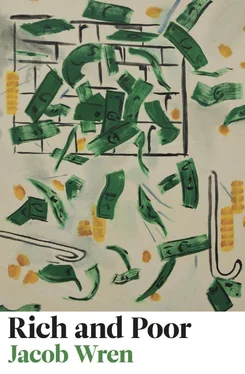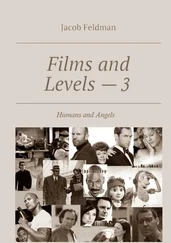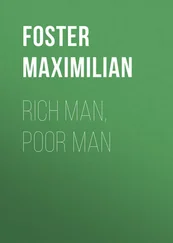The memo went on to explain that if either the manager in China or the manager in France were to be blamed, it would create unnecessary tensions between the divisions, divisions that will need to continue to work together, and work together quite closely, well into the undefined future. Any tensions starting now would most likely escalate, creating unforeseen problems, while reprimanding, or even firing, someone unimportant would create considerably less long-term collateral damage. And yet I couldn’t read the memo without wondering, all night in this case, whether its logic might some day be applied to me, whether some day I would be the unimportant individual who gets the axe, and more specifically, if there were to be some future, large-scale crisis within the organization, whether firing me might be the most efficiently symbolic solution. As a notable, one could even say popular, figurehead, firing me would be a clear sign to the public that serious changes were being made within the organization, while at the same time leaving those actually responsible in the clear.
But why the fuck do I even care? Let them fire me. They were not my equals. I could eat a dozen of them for breakfast, and still, even at my age, whip up the energy to found another organization, from scratch, at least twice this size, all before noon. Or at least that is how I would have felt only a few years ago, and I still believe it, to a certain extent, still to this day. But I was also lying to myself if I didn’t admit that something had changed. That first meeting in Zurich, already strained from my night of self-lacerating insomnia, began with a fight. My opponent claimed he had received little support from the head office, and used as his first example the fact that they sent me for this meeting, instead of sending someone more important. I don’t know why he chose to begin the meeting with this slap to my face, and I was about to tear into him, annihilate him, leaving behind nothing but ashes, when, for some reason, even though it is rarely my style, I decided to attempt a few rounds of diplomacy to get the ball rolling. He was young — the youngest CEO the division ever had — and I wondered if he suffered from generational anxieties, fears that he wasn’t at the same level as the founders, as my generation, and therefore needed to prove himself by knocking me down a few rungs. Or if his tactic was simply a sign of inexperience. Or maybe he only thought I was no longer particularly important and therefore he could take me.
So, if we can call it my attempt at diplomacy, I began by pointing out that it was not the role of the organization to serve each of the divisions; it was in fact the responsibility of each division to serve the organization, and if he felt he was not receiving enough ‘attention,’ perhaps it was because his division was underperforming, while at the top they had more important matters to attend to. If he wanted more attention, at the very least, he could begin by generating more profit. This did not go over well. Moreover, it irked me to refer to those ‘at the top,’ since in the past I had always been the top, there had never been anyone above me. He came back at me hard, claiming he had outperformed, generated more profit, than any other division in his hemisphere, and perhaps it was only because of his relative youth that he was not being taken seriously. Then I knew I had him. I started to relax, time for the real diplomacy to begin, gently explaining that by the time I was his age I wasn’t just running one division, I was already running the entire organization, over one hundred and twenty divisions at that time, and if he felt people were discriminating against him because of his youth, I had an equal if not greater grievance, in that I felt some individuals, himself included, did not take me seriously because of my age, when in fact they should be making use of my considerable experience, unparalleled anywhere in the current business world, and, instead of attacking me at first sight, if he had one ounce of sense in his thick skull, he would be taking this opportunity to learn from me, since at this moment I was his best chance for advancement and — with that ridiculous chip on his shoulder, not to mention his general lack of social grace — he was flushing this one chance straight down the toilet.
He thought about it for a moment, then apologized. He was sure we could work together, for the good of his division and for the good of the organization. But then he corrected me. When I was his age I was not yet CEO of everything, that came ten years later. He still had ten years to beat my record and I shouldn’t underestimate him. The Swiss were neutral, he explained, but that certainly didn’t mean, silently, behind the scenes, they wouldn’t kill when necessary.
2.
Initial plans to unionize slowly began to seem feasible. Word was spreading that this was the reason I had come, and though I often felt like an imposter, most of the workers instead treated me like an expert. Here, unlike in the past, I was someone who knew what needed to be done and how. Only, in reality, I wasn’t that person at all. Or even that kind of person. Nonetheless, as I was learning, when you pretend to be something, you also gradually become it.
I was asleep in my cheap hotel room. Every night, as I lay down, I thought that perhaps tomorrow I should give up this room and go sleep in the field with the others, that this move would increase solidarity, but each morning for some reason I hesitated, still wanting a margin of difference between myself and the other workers. I was asleep when the door opened and a number of men quietly entered the room. They turned on the light, dragged me out of bed, threw me to the floor, and immediately started kicking me, one after the other, and I screamed, and they each kicked me again, and I screamed again and again until they momentarily stopped. “We could kill you right now and no one would care or notice,” one of them said. I could barely look up, barely tell them apart, there were at least ten, “but we won’t kill you now. We want the others to see what we’ve done, see what each of them will look like if they continue along with your idiotic scheme. You are an idiot, a moron, a piece of shit, and you must understand that if you continue, we will kill you.” Then the kicking resumed, I don’t know for how long, or for how long before I passed out, or how long until I came to again, but when I did they were gone.
I tended my wounds the best I could, then tried to sleep for a few hours, and I suppose I managed, dreamt of more men kicking me, as if the kicking would never stop, but at least I slept. In the morning, first thing, I checked out of the hotel. The clerk was unfazed by my two black eyes; he must have given them the key to my room but I didn’t hold it against him. He most likely felt he had no choice. I bought a cheap tent in town, the same tent that so many of the others had already bought, and went to live in the field. I was in agony but decided to remain stoic, hoping that my example would serve to strengthen the general resolve.
It didn’t take long for word to spread. In a few hours everyone knew what had happened to me, and I spent all day roaming the field, patiently explaining that they couldn’t scare me and we wouldn’t give up. There were so many different languages in that field, and it was often difficult to communicate. I was constantly searching for someone who could translate, even if it was only a few words. Together we would all pick a day, it had to be soon so we didn’t lose momentum, and for just that one day work would completely stop. Just to show that it is possible, that we were capable and organized. They could beat me but they couldn’t beat us all. This wasn’t like some factory they could move overseas. The crops were growing here, and it was here they needed to be harvested. I insisted we keep our demands simple and direct. That they double all wages. If before you would get one dollar per token, soon you would get two. And that they cancel all deductions. They brought us here because they need us. They give us water and food because they need us hydrated and fed, ready to work. There was no reason for such things to be deducted from our basic wages. I spent years of my life reading shareholder reports, the years leading up to the bonfire, knew they could afford it, that it would barely make a dent in their bottom line. We might not get everything we wanted, but we’d get something, the situation would definitely improve. However, I also knew the flaw in my plan, that we were dealing only with subcontractors, it was unlikely our demands would reach the people who mattered, the people who actually had the power to grant them. This was an obstacle I did not yet know how to surmount.
Читать дальше












